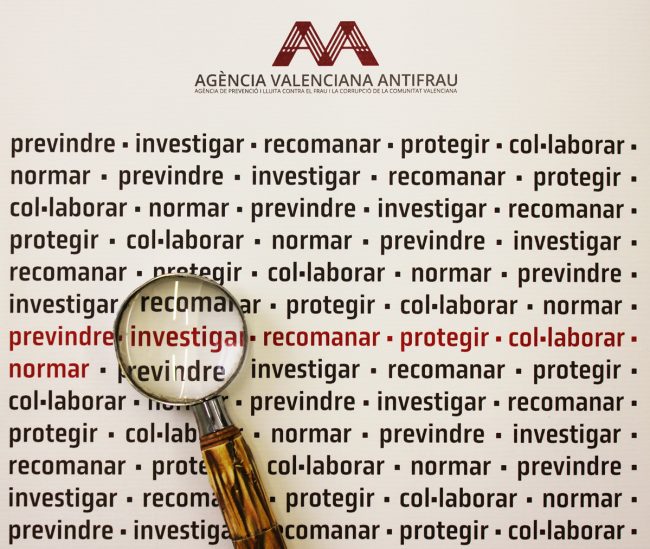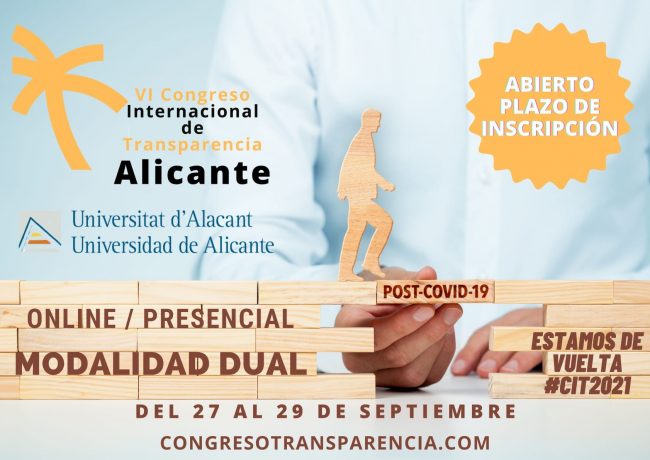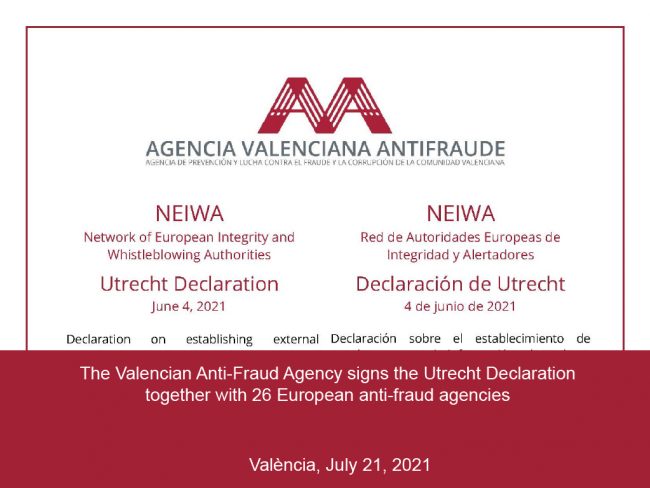Valencia, September 20, 2021. – The total number of complaints received throughout the year 2020 in the Valencian Anti-Fraud Agency was 226 and only in the first 6 months of 2021 187 complaints have already been registered, which is twice the registered complaints in the same period of the previous year.
If we see the evolution of complaints in the Agency since its creation, the increase has been continued and thus in 2017, the year the Agency was created, 35 complaints were registered. In 2018 they increased to 181, falling somewhat in 2019 and increasing to 226 in 2020 despite the pandemic situation.
If we look at the subject matter of the complaint in 85 of the 187 complaints received, 45% of the cases, the complaint is related to the management of human resources in different public administrations, especially in relation to selection processes and the provision of personnel. as well as issues related to the rights and duties of personnel and incompatibilities.
In second place with respect to the complaints presented are those referring to public procurement with a total of 29 complaints, which represents 16% of the total complaints. The third place is occupied by complaints about subsidies (7%) followed by those that refer to urban planning and environment issues with 6% of the total.
If we look at the channel used to file complaints 85% of the time (165 complaints), the chosen system was the Agency’s complaints box, which even allows complaints to be made anonymously. In second place, the most used channel has been email with 14 complaints filed (7%); followed by the general registry with 4 complaints (2%) and the electronic office with 1 complaint (1%); the appearance record with 2 (1%) and open ex officio / others with 1 (1%).
The increase in complaints filed is directly related to the increase in public confidence in the Agency’s work, in addition, the management of the first semester reflects a significant increase in the management and resolution capacity of the files. With regard to the completion of files, a total of 141 resolutions have been issued in this first semester in the analysis phase, of which 45 were archived, 46 were inadmissible and 50 were at the beginning of the investigation phase, which places in 35% the percentage of complaints that go to the investigation phase.
For its part, in the investigation phase, a total of 40 files have been finalized, of which 9 concluded on file, 28 with verified irregularities, raising recommendations and 3 with indications of criminal offenses and their corresponding transfer to the prosecution.
The Valencian Antifraud Agency will participate in the 2021 International Transparency Congress
Valencia, September 8, 2021.- The VI edition of the International Transparency Congress will be held between September 27 and 29. In last year’s edition it had to be held only online due to the situation caused by the coronavirus crisis, but this year the organization has also wanted to promote the face-to-face modality so that it will be possible to participate in the congress in both modalities.
The VI International Congress on Transparency will serve as a space for the exchange of experiences and research related to the field of transparency, as well as related topics, such as accountability, public integrity, participation, regulation of lobbies and the fight against misinformation.
The Congress will be inaugurated by the president of the Generalitat Valenciana, Ximo Puig i Ferrer, the rector of the University of Alicante, Amparo Navarro Faure, and the president of the Council for Transparency and Good Governance of Spain, José Luis Rodríguez Álvarez.
It will consist of round tables, conferences and working groups.
Also within the framework of this congress, the VIII Meeting of the State Network of Anti-Fraud Agencies and Offices will be held, which will make an institutional statement as well as a workshop on the transposition of the European Directive for the Protection of Complainants as a key opportunity in our country for the creation of a national anti-corruption strategy.
The Congress already has more than 600 registered people from more than 21 countries (Spain, Mexico, Brazil, among others). The registration period will be open until September 20 and this can be done through the event website. In the CIT 2021, more than 180 papers will also be presented in 22 working groups that will address important issues, such as transparent language, public procurement and the evaluation of transparency, among other topics.
Link to the Congress website: https://congresotransparencia.com/




